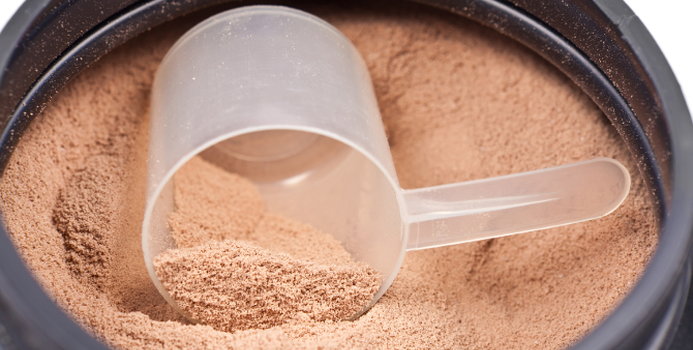The average person doesn't typically need a high protein diet, but there are some cases where using protein powder is a convenient, easy way to increase total protein intake. Illness or injury recovery, growth, starting a new exercise program, or switching to a vegetarian or vegan diet are all reasons why we might have a need for increased intake.
If you decide to raise your protein consumption, supplements and powders can be a convenient way to do so. But with all the brands, sources and advertisements, it can be confusing trying to choose one.
Whey protein is a widely available animal-based protein, which is derived from cow's milk and is water-soluble. It is generally inexpensive and is a complete protein; that is, it contains all nine essential amino acids that the human body needs but cannot synthesize. As a result, we have to get these amino acids from the food we eat. Whey enters your blood stream faster than other sources and also has a high level of the amino acid leucine, which is important in building muscle.
Whey protein comes in a few forms: isolate, hydrolysate, and concentrate. In order to provide a high percentage of protein, whey is concentrated by removing non-protein nutrients. Concentrate is about 70-85% protein, with the remaining 15-30% as carbohydrates and fat. Even more carbohydrates and fat are removed to create whey isolate, which can be as high as 95% protein. Hydrolysate is a form where the large peptide molecules have been partially broken down to ease digestion and speed up absorption.
The downside of whey protein is that it contains lactose; if you are lactose intolerant, you may need to try a different kind of protein. Whey protein isolate, due to the high concentration of protein (and resulting low concentration of carbohydrate or fat), often does not contain lactose, but it's a good idea to read the nutrition information to make sure.
Beyond the type of whey protein a powder uses, it's also important to look at the nutrition facts label, specifically the ingredient list. This way, you can see exactly what is contained in the powder, and whether there are added ingredients like sugar or fillers. Many protein powders are flavored in order to increase palatability, which means additional ingredients. Aim for a supplement with few ingredients.
Protein powders can be a convenient, easy way to increase protein. But they can also be expensive. More concentrated forms like isolate can cost more, without really offering an increased benefit. Make sure to consult your doctor before taking protein powder if you are under medical treatment.
When choosing a whey protein, the best option to offer good value would be a whey protein concentrate without many added ingredients.

Carolyn McAnlis, RDN, is a Registered Dietitian Nutritionist who has a special interest in preventing chronic disease through nutrition. She graduated from Syracuse University with a Bachelor of Science in Nutrition Science & Dietetics and a minor in Psychology. After completing a full-time dietetic internship at the University of Virginia Health System, she has developed a passion for convincing others that healthy food can be delicious through her blog A Dietitian in the Kitchen.



